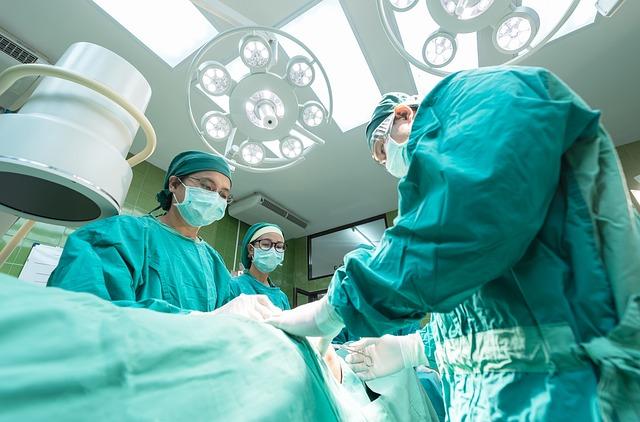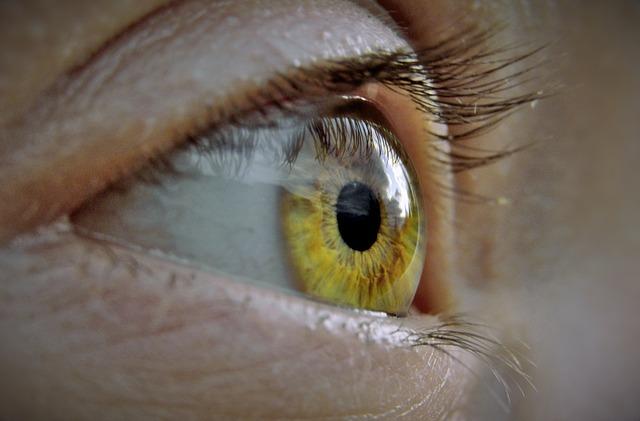In Guinea, a nation grappling with the remnants of political turbulence and social unrest, a significant segment of the population remains trapped in a cycle of trauma and neglect. Recent reports by Amnesty International underscore the grim reality faced by victims of unlawful use of force, who continue to await both adequate healthcare and justice for the atrocities they endured. Amidst a backdrop of political instability, these individuals confront not only the physical and psychological scars of violence but also systemic barriers that hinder their access to essential medical services and legal redress. As human rights advocacy groups call for accountability and reform, the lingering plight of these victims serves as a stark reminder of the urgent need for a comprehensive response to their suffering—one that prioritizes healing, justice, and the protection of human rights in Guinea.
Guinea’s Unlawful Use of Force: An Ongoing Human Rights Crisis

The plight of victims affected by unlawful force in Guinea underscores a grave violation of human rights that continues to fester. Reports indicate that individuals targeted by security forces during protests have suffered severe physical and psychological trauma, leaving them not only in urgent need of medical care but also a sense of justice that remains painfully elusive. Numerous accounts highlight the stories of those who have endured violence, frequently enough going unheard in the corridors of power. Key issues include:
- Medical Neglect: Many victims are denied timely healthcare, exacerbating their injuries.
- Impunity: Law enforcement personnel act with little fear of accountability, perpetuating a culture of violence.
- Lack of Support: Survivors struggle to access psychological support and rehabilitation services.
The international community must promptly intervene to pressure the Guinean government to uphold human rights standards and provide necessary care and justice for victims. Amnesty International emphasizes the importance of documenting these human rights abuses to ensure that victims’ voices are amplified. A transparent investigation process is essential,and maintaining pressure on authorities to bring those responsible for these brutal acts to justice is crucial for fostering a safe environment for all Guineans.
| Issue | Impact on Victims |
|---|---|
| Unlawful Use of Force | Severe physical harm and psychological trauma |
| Denying Healthcare | Worsening of injuries and chronic conditions |
| Impunity | Intimidation and a lack of trust in authorities |
Health Care Emergency for Victims: Access Denied and Needs Unmet

The ongoing plight of victims subjected to unlawful use of force in Guinea highlights a catastrophic failure in the healthcare system and access to justice. Many individuals suffering from severe injuries are left stranded, unable to acquire even the most basic medical attention.Victims are confronting a harrowing reality where their needs go unmet, resulting in prolonged suffering. Key barriers to healthcare include:
- Lack of medical facilities: Numerous hospitals and clinics are inadequately equipped to handle emergency cases.
- Access restrictions: Victims face obstacles reaching healthcare providers due to ongoing safety concerns.
- Neglect by authorities: There is minimal support or follow-up from government agencies to assist affected individuals.
The situation not only poses immediate risks to health but also undermines the essential principle of justice for affected individuals. As healthcare providers remain overwhelmed and under-resourced, the gap between need and provision only widens. Many victims report feeling abandoned and hopeless,which amplifies their trauma. To illustrate the pressing nature of this issue, below is a summary of the current healthcare struggles faced by victims:
| Struggle | Impact |
|---|---|
| Delayed treatment | Increased severity of injuries and chronic conditions |
| Lack of psychological support | Prolonged mental health issues, including PTSD |
| Insufficient funding | Healthcare facilities unable to operate effectively |
Systemic Injustice: The Legal Impasse Facing Victims

The ongoing struggle for justice and healthcare among victims of unlawful use of force in Guinea underscores a persistent systemic failure within the legal framework. Amnesty international has highlighted the plight of individuals who have bravely sought accountability but are met with bureaucratic red tape and institutional neglect. Victims face an uphill battle against a system that often prioritizes the protection of the state over the rights of individuals, leaving them in a precarious situation where their health deteriorates and their pleas for justice go unheard.
Numerous factors contribute to this legal impasse, compounding the challenges faced by those seeking redress:
- Lack of Legal Representation: Many victims cannot access legal aid, leaving them vulnerable.
- Delay Tactics: Authorities often stall investigations, leading to further trauma.
- Cultural Stigma: Victims face societal pressure that discourages them from pursuing claims.
This scenario illustrates the broader implications of systemic injustice, where the absence of accountability not only perpetuates suffering but also threatens the fabric of society itself.Advocates argue that immediate reforms are essential to restore faith in the legal system and ensure that victims receive the support and justice they rightfully deserve.
International Response: The Role of Human Rights Organizations

The plight of victims affected by the unlawful use of force in Guinea resonates deeply with human rights organizations worldwide. Amnesty International has been at the forefront of advocating for justice, compelling local authorities and international bodies to take definitive action. These organizations have mobilized efforts that include:
- Documenting Violations: Collecting evidence of human rights abuses to build a strong case for accountability.
- Advocating for Health Care: Calling for immediate access to medical care for those injured, emphasizing the urgency of their needs.
- Campaigning for Justice: Engaging the global community to pressure Guinean authorities to investigate and prosecute those responsible.
In this critical phase, the role of human rights organizations extends beyond mere advocacy; it involves fostering a comprehensive support system for the victims. These organizations strive to ensure that the international community remains vigilant and responsive to the situation in Guinea by:
- Raising Awareness: Utilizing social media and traditional platforms to highlight the ongoing abuses.
- Providing Legal Aid: Assisting victims in navigating the legal landscape to seek redress.
- Establishing Networks: Creating alliances with local activists to strengthen grassroots movements.
| Action | Description |
|---|---|
| Documentation | Collecting evidence of human rights violations. |
| Advocacy | Campaigning for justice and healthcare access. |
| Awareness | Utilizing media to highlight victims’ stories. |
Recommendations for Immediate Action: A Path Towards Justice

In light of the ongoing struggles faced by victims of unlawful use of force in Guinea, immediate actions are essential to ensure that justice is served and healthcare needs are met. Key initiatives should focus on:
- establishing an Autonomous Commission: An impartial body is necessary to investigate allegations of excessive force and hold perpetrators accountable.
- Enhancing Access to Healthcare: Swift measures must be taken to provide medical attention to those injured during these incidents, ensuring they receive necessary treatments without barriers.
- Advocating for Legal Reforms: Revisions of laws governing the use of force and the protection of human rights should be prioritized, creating a framework for accountability.
Moreover,collaboration between government agencies and civil society organizations can facilitate a more holistic approach to restoring justice.Implementing community outreach programs can also play a pivotal role in:
- Building trust: Fostering a relationship between the state and victims, encouraging them to share their experiences and seek assistance.
- Raising Awareness: Educating the public about their rights and available resources can empower victims to advocate for themselves.
- Promoting Mental Health Support: Establishing support networks for psychological trauma is crucial for the recovery of victims.
Long-Term Implications: Healing and Accountability in guinea

The path toward recovery for victims of unlawful force in Guinea is fraught with challenges that extend far beyond immediate medical care. Many survivors suffer from long-term physical and psychological injuries, necessitating a comprehensive approach to their healing. This includes not only access to healthcare services but also psychosocial support, which plays a critical role in helping individuals process their experiences and rebuild their lives. Survivors often express a need for:
- Ongoing medical treatment for injuries sustained during incidents of violence.
- counseling and mental health services to address trauma and emotional distress.
- Community support networks that promote understanding and solidarity among affected individuals.
Moreover, achieving accountability for unlawful actions taken by state authorities is essential for ensuring that victims receive justice and recognition for their suffering.The government must not only acknowledge the violation of rights but also actively investigate incidents and hold perpetrators accountable through the legal system. An effective framework for accountability would include:
- Transparent investigations into incidents of unlawful force.
- Legal reforms aimed at protecting human rights and preventing future abuses.
- Victims’ participation in legal proceedings, allowing them to share their stories and seek redress.
| Key Aspects of Healing and accountability | Importance |
|---|---|
| Access to Medical Care | Critical for physical recovery and rehabilitation. |
| Psychosocial Support | Essential for emotional healing and resilience. |
| Community Engagement | Fosters a sense of belonging and reduces isolation. |
| Legal Accountability | Ensures justice and deters future violations. |
The Conclusion
the ongoing plight of victims of unlawful use of force in Guinea underscores a critical intersection of human rights and healthcare access.As documented by Amnesty International, the failure to provide adequate medical care and justice not only exacerbates the suffering of individuals affected by violence but also reveals systemic failures within governance and accountability. The urgent need for reform and support is clear; the individuals impacted deserve recognition, reparative justice, and the necessary healthcare to heal from their traumatic experiences.as international attention remains focused on Guinea, it is essential for both local authorities and the global community to prioritize the promotion and protection of human rights, ensuring that those who have endured such violations are no longer left waiting for the justice and support they rightfully deserve.







